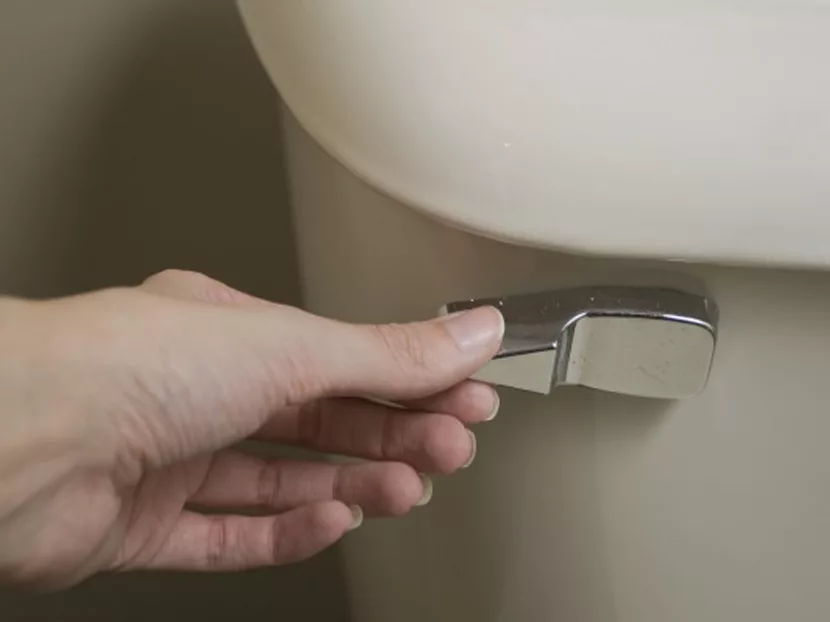Whether used to remove cosmetics, clean a baby or wipe food and debris from the kitchen counter, a growing number of consumers are purchasing flushable wet wipes for their household needs. In fact, The Atlantic reported personal wet wipe sales reached an estimated $2.2 billion last year, and Euromonitor International’s market tracker predicts 3-percent growth in sales volume of wet wipes from 2014 to 2019.
Sales of flushable wipes have increased due to their convenience. But this convenience can come at a high cost as demonstrated in news reports about the detrimental effects these wipes can have on plumbing systems. Because of this risk, it’s important to understand how these flushable wipes can cause system destruction and what pumps should be installed to better handle them.
The waste being flushed through the modern wastewater stream today is very different than in the past, with flushable wet wipes as a prime example. Unlike toilet paper, wipes don’t disintegrate easily or quickly and can clog sewage treatment equipment and home septic systems. Clogging can occur when several wipes get stuck in a pump, or if debris builds up on the flushable wet wipes that are already stuck in the system. Because of these potential harmful effects, flushable wipes need to be removed and dumped, often at the municipal level. They are removed using a large filter screen that is lifted by a hoist, or in a settling area that separates and removes the wipes by a front-end loader since wipes don’t break down within the time frames for which sewage treatment plants are designed.
The term “flushable” itself is somewhat misleading. Many consumers believe that when a wipe is labeled flushable it is safe to flush it down the toilet. If it weren’t for the recent news coverage, many people would not know that these wipes actually become clogging material as they travel through a pumping system — and costly material at that. According to a 2015 New York Times article, New York City, which runs the largest sewer system in the U.S., spent more than $18 million over five years to repair equipment problems because cloth-like material, such as flushable wipes, didn’t disintegrate.
To address challenges presented by flushable wipes, the industry is adapting and introducing products, including grinder pumps and vortex impellers that are designed to help alleviate system damage.
A grinder pump is a wastewater transportation device that helps filter household waste, like personal wet wipes, to the larger sewer system. Waste from a water-using household appliance — toilets, sinks, etc. — flows through a home’s pipes into a grinder pump’s holding tank. Once the wastewater inside the holding tank reaches a certain level, the grinder pump will turn on, cut the waste materials into tiny bits and pump the slurry to the central sewage system or septic tank.
Many grinder pumps, like Xylem’s RGS2012 Residential Grinder Pump, are designed for residential and commercial sewers where flushable wet wipes are present in the stream. Flushable wipes can go through toilet plumbing, but not necessarily the entire sewage system. This is where a grinder pump takes over. It cuts the wipes into tiny pieces, which are then passed down the piping network before being discharged at a collection point. The RGS2012 Residential Grinder Pump is designed for continuous use and is capable of grinding domestic sewage in high head sewage applications.
Evolving grinder pump technology is leading to the use of alternative pump materials in the manufacturing of pumps. Traditionally, grinder pumps were constructed of cast iron and filled with oil. Manufacturers are looking at other high-efficiency casings that are air-filled because it takes less energy to spin the motor rotor in air than it does in oil.
Another industry trend is the redesign of the cutter technology using multi-lobe axial cutter wheels. The new design enables grinder pumps to process nontraditional amounts and sizes of waste discharge because the multi-lobe axial cutter wheels chop the waste materials into extremely small pieces.
Vortex impellers are designed so the waste stream material traveling through the impeller does not need to touch it to pass. This helps to prevent materials, like flushable wipes, from collecting on the impeller and eventually clogging the system.
For example, if a pump has a two-inch solids handling requirement, which is a common residential wastewater specification, the two-inch sphere does not need to touch the impeller when it passes through the volute — the curved funnel that enlarges as it approaches the discharge port — of the vortex pump. If the waste material traveling through the pump is stringy, stranded or even cloth-like, a vortex impeller helps prevent the slurry from forming a twisted mess that would otherwise bind or clog the pump.
It is important to note that grinder pumps and vortex impellers can help avert clogs, but they are not a panacea. They are not designed to remove the wipes from the sewer system, and, on occasion, do not break down the wipes enough to enable them to pass through the pump. If a pumping system becomes clogged, the only way to fix the plumbing issue is to remove the wipes from the system.
Bo Gell, global product manager, Wastewater, has worked in Xylem’s Applied Water Systems business unit for five years. Gell has extensive experience in residential, commercial and marine pumps.





